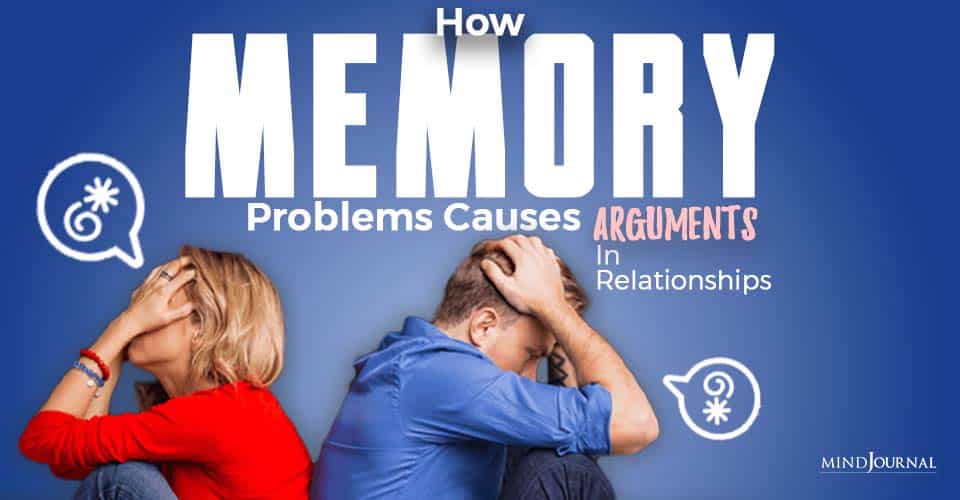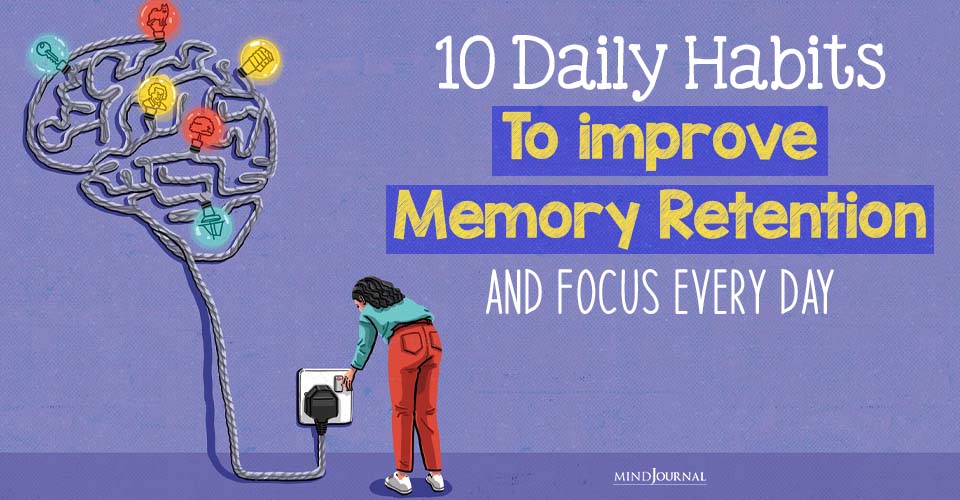Your story feels accurate, but when rehashing issues, things become distorted. Read on to know how memory problem causes arguments in relationships.
Your Memory Is Deceptive
Shelby and Stan (names have been changed) were arguing in front of me over an incident at her parents’ house. “We went there for a family barbecue after we first started dating,” Shelby reported. “Stan was just getting to know my family, and he ended up losing his temper and embarrassing me in front of everyone. It was a catastrophe!”
“Her little brother is a twerp, and he came up and pulled my shorts down around my ankles,” said Stan. “He thought this was hysterical, but I was mad.”
“So you hurt him,” Shelby said. “You Hulked out and tackled him and he ended up with bruises and is now freaked out by you. My parents were wondering what kind of guy I brought over.”
“Your parents should have been wondering about what kind of teenager they were raising.” Stan snapped. “Your brother was a spoiled punk, and I didn’t tackle him. I just chased him and put him in a little headlock. He needed to learn his lesson, and he wasn’t hurt, he just had a couple of scuffs.”
“He was bleeding and crying! You almost killed him!”
“I barely touched him, and he was laughing!”
“Everyone was shocked at what you did!”
“No one cared! They thought he deserved it!”
Have you done this in your relationship?
Recounted the same event but had different versions of it?
Have you become frustrated at your partner’s inaccuracies in memory?
How could they be so wrong about basic facts?
Are they lying or just confused?
They are probably just doing the same thing you’re doing, which is remembering something incompletely.
Also read 16 Weird Mind Tricks Your Brain Plays On You
Memory is not a video that replays the same way each time. It is like an improvisational play, where themes and events are reworked slightly with each performance.
Professor Ulrick Neisser did an impromptu experiment after the space shuttle Challenger exploded in 1986. The day after the disaster, he asked his class of 106 students to write down where they were when they heard about it.

Three years later he asked these students the same thing. Over 90% of the accounts changed, and about half of them were inaccurate in at least two-thirds of the details. The revised memories had supplanted the earlier, more accurate ones, but the new ones still felt true. One student was shown her first description, written three years earlier, and said, “I know that’s my handwriting, but I couldn’t possibly have written that.”
Memories are shaped by feelings that existed at the time, but also by the way the memory is retrieved.
For example, how someone asks a question will influence the details of an event. Elizabeth Loftus showed participants a short movie of an auto accident, and afterward, asked them questions, but discovered that the words she used influenced what observers remembered.
For instance, she asked people how fast the car was going when it hit the other car. But when she changed the word “hit,” to “smashed,” the estimates of speed were higher. More people remembered seeing broken glass when she asked the “smashed” version as well.

Also read What Is Cognitive Dissonance? Common Causes and How To Resolve It
If Memory Serves …
If a partner recalls a story while angry, the details will be more negative. Brains fill in gaps to support the angry version, and memory serves its owner. Details that don’t fit are dropped, and others are added to make the memory coherent and pleasing.
It only takes a few days after an event for the details to change. Stan and Shelby may have had similar initial memories of when Stan mooned the barbecue, but their current marriage problems were darkening these recollections. Now Stan remembers Shelby being biased and critical, and she remembers him as extreme and violent.
This negative filter was a bad sign. Couples who are not doing well say things like, “We got married too young, I didn’t see what a slob he was then.” Or, “She tricked me into thinking she would actually be excited about sex.”
In one study, researchers interviewed 56 couples, none of whom were planning to divorce. However, the team accurately predicted the seven couples that would divorce based on the negative way they talked about their history. After relationships fail, exes are inclined toward “retroactive pessimism,” where they recall the problems in a way that sounds like they were inevitable: “It was doomed from the start.”
The reverse is true as well.
When couples feel loving, they recall things more generously.
Satisfied partners describe their history in positive terms and will laugh about previous bumps and misunderstandings. When President Kennedy was assassinated, there was an outpouring of grief in the United States. In a poll following, two-thirds of respondents recalled voting for him in the previous election, when only half really had. People’s memories changed to be consistent with the positive emotions they felt about their martyred president.
Not only do memories feel true, but they aren’t easily corrected. When someone is attached to a story, challenging it with contrary information can entrench it further. This tendency is called “belief perseverance,” which is when a person refuses to change even in the face of contradictory data. Stubborn partners are often wrong, but they are rarely in doubt.
Also read The 3 Methods Of Mastering The Mind
Belief perseverance is self-protective. When couples attack each other’s recall, even with evidence, it feels like an attack of the person. Stan and Shelby were implying the other was incompetent, not just inaccurate. Even if each brought witnesses from the barbecue to testify for their version, it would not convince the other.
When a spouse tries to browbeat the other into agreement, it doesn’t work and causes resentment. Imagine an argument where one comes away grateful for having been forcibly corrected: “Gee, thanks Shelby for helping me see how wrong I was! Now I can go forward in truth and light!”
Stan and Shelby finally realized no amount of arguing would convince each other whose story was most correct at that fateful poolside day. As they improved at having positive conversations, they were better able to laugh and see that their stories had become warped. They heard each other out and agreed to drop the issue. They also agreed to avoid pool parties at her parent’s house until her brother left home.
Adapted from Love Me True: Overcoming the Surprising Ways We Deceive in Relationships. Cedar Fort Publishing.
References Ulric Neisser, and Nicole Harsch, "Phantom Flashbulbs: False Recollections of Hearing the News About Challenger." (1992). In Affect and accuracy in Recall: Studies of 'Flashbulb' Memories, eds. E. Winograd, Ulric Neisser (New York: Cambridge University Press, 1992, p. 9-31). ISBN 978-0521401883 Elizabeth F. Loftus and John C. Palmer, “Reconstruction of Automobile Destruction:An Example of the Interaction Between Language and Memory,” Journal of Verbal Learning and Verbal Behavior, 13, 585-589 (1974). H. L. Roediger, E. T. Bergman, and M. L. Meade, “Repeated Reproduction from Memory,” in Bartlett, Culture and Cognition, ed. A. Saito (London, UK: Psychology Press, 2000), 115-34. Burger, Jerry M., and Rose M. Huntzinger. "Temporal Effects On Attributions for One's Own Behavior: The Role of Task Outcome." Journal of Experimental Social Psychology 21, no. 3 (1985): 247-261. Lawrence J. Sanna, and Edward C. Chang, "The Past Is Not What It Used to Be: Optimists’ Use of Retroactive Pessimism To Diminish The Sting of Failure," Journal of Research in Personality 37, no. 5 (2003): 388-404. Lawrence J. Sanna, and Edward C. Chang, "The Past Is Not What It Used to Be: Optimists’ Use of Retroactive Pessimism To Diminish The Sting of Failure," Journal of Research in Personality 37, no. 5 (2003): 388-404
Written by: Jason Whiting, Ph.D
Originally appeared on: Psychology Today
Republished with permission










Leave a Reply